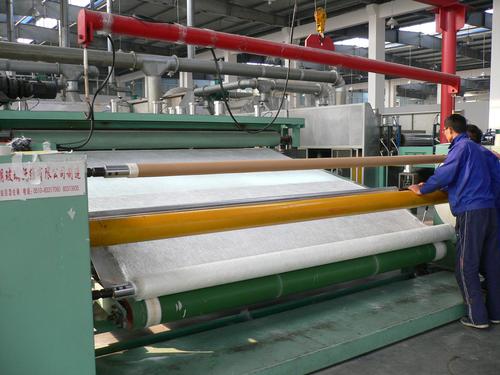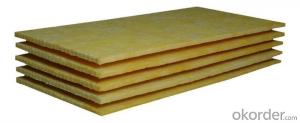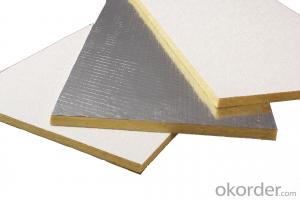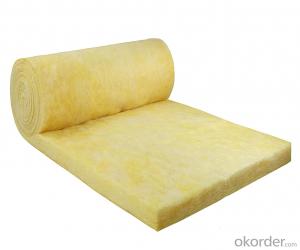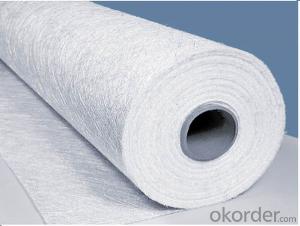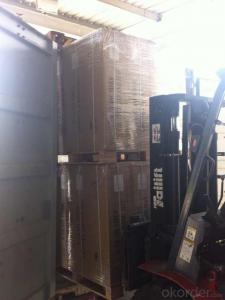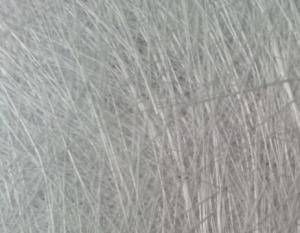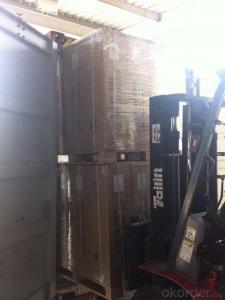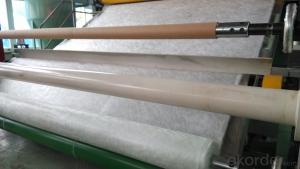Fiberglass Mat Tissue - E-Glass Chopped Strand Mat Emulsion Bonded-1040/1250/1270/1860/3200mm
- Loading Port:
- Shanghai
- Payment Terms:
- TT or LC
- Min Order Qty:
- -
- Supply Capability:
- 1500ton m²/month
OKorder Service Pledge
OKorder Financial Service
You Might Also Like
Specification of E-Glass Chopped Strand Mat
Property | Glass type | Weight(g/m2) | Width 200~3300 | Roll Weight | Moisture Content /% | Combustible Content /% | Breakage Strength /N |
Test Method | GB/T 1549 | ISO3374:2000 | ISO3374 | GB/T17470-1998 | ISO3344:1997 | ISO1887:1995 | ISO3342 |
EMC 80 | E-GLASS | 80±16 | ±5 | 6~50 | <0.2 | 13.6±0.35 | ≥200 |
EMC 100 | E-GLASS | 100±10 | ±5 | 6~65 | <0.2 | 9.5±0.35 | ≥170 |
EMC 150 | E-GLASS | 150±15 | ±5 | 6~97 | <0.2 | 8.0±0.35 | ≥40 |
EMC 225 | E-GLASS | 225±22 | ±5 | 6~150 | <0.2 | 5.0±0.6 | ≥60 |
EMC 300 | E-GLASS | 300±30 | ±5 | 6~180 | <0.2 | 4.0±0.6 | ≥90 |
EMC 450 | E-GLASS | 450±45 | ±5 | 6~180 | <0.2 | 3.8±0.6 | ≥120 |
EMC 600 | E-GLASS | 600±60 | ±5 | 6~240 | <0.2 | 3.6±0.6 | ≥150 |
EMC 900 | E-GLASS | 900±90 | ±5 | 6~190 | <0.2 | 3.4±0.6 | ≥180 |
Characteristics of Chopped strand mat
1.Uniform density ensures consisttent fiberglass content and mechanical properties of the composites products;
2.Uniform powder distribution ensures good mat integrity, little loose fibers and small roll diameter;
3.Excellent flexibility ensures good moldability with no spring back at sharp angles;
4.Fast and consistent wet-out speed in resins and rapid air lease reduce resin consumption and production cost, and enhances productivity and mechanical properties of the end products.
5, The composite products have high dry and wet tensile strength and good transparency.
6, Optional for high strength with stiff mat for panel laminating and midle strength with soft mat for hand layup.
Product description of Fiber Glass Powder Binder Chopped Strand Mat
Glass Fiber Emulsion Binder Chopped Strand Mat is an unwoven fabrics consisting of randomly distributed chopped strands held together with Emulsion Binder.
Emulsion Binder Chopped Strand Mats are compatible with unsaturated polyester, vinyl ester, phenol and epoxy resins.
The products are widely used in hand lay-up process and can also be used in compression molding and continuous laminating process and hand layup process. The typical end-use applications include various panels, boats, bathroom accessories, automotive parts and cooling towers.
FAQ:
1. Why Choose us?
CNBM is a stated own company, provide the guarantee for the best quality, best service and safety business.
2. How will we guarantee the quality?
a, ISO 9001-2008 quality control system;
b, Strict and regular quality control in production;
c, Inspeciation when loading into container before shippment;
d, Sample stock for one year for quality tracing and record.
3. What is your MOQ?
Our MOQ is one pallet.
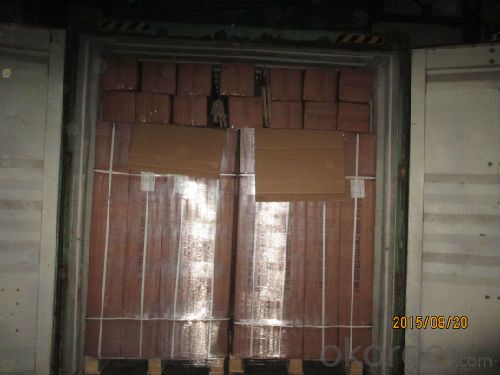
Package:
1, the Mat roll will be wrapped in PVC/PE film, then packed with carton boxes;
2, Vertically placed on bottom pallets by:
4 rolls*4 rolls or 4 rolls* 5rolls
Horizontally placed on upper pallets by:
3 rolls*4 rolls
3, the whole pallet will be fasten by PVC strips;
4, the whole pallets will be wrapped by strentchable PE film.
- Q: Is fiberglass mat tissue easy to install?
- Installing fiberglass mat tissue is relatively easy. This lightweight and flexible material can be easily cut and shaped to fit any surface. It can be applied using different methods, including spraying, rolling, or brushing on adhesive. Moreover, the tissue is self-adhesive, which simplifies the installation process as it readily adheres to the desired surface. Additionally, fiberglass mat tissues are generally designed to resist water and offer excellent insulation, making them a favored choice for various applications. In conclusion, by adequately preparing and following the manufacturer's guidelines, installing fiberglass mat tissue can be a simple and trouble-free task.
- Q: What is the dimensional stability of fiberglass mat tissue?
- The dimensional stability of fiberglass mat tissue refers to its ability to maintain its size and shape under various conditions. Fiberglass mat tissue is known for its excellent dimensional stability, making it highly resistant to shrinking, expanding, or warping. This stability is achieved through the manufacturing process, which involves bonding glass fibers together using a binder material. This binder not only ensures the integrity of the mat tissue but also helps it maintain its dimensional stability over time. Additionally, the inherent properties of fiberglass, such as its high strength and stiffness, contribute to its exceptional dimensional stability. These characteristics make fiberglass mat tissue a popular choice in various applications, including construction, automotive, and aerospace industries, where consistent dimensions are crucial for optimal performance and durability.
- Q: Is fiberglass mat tissue resistant to fading?
- In general, fiberglass mat tissue tends to lack resistance against fading. Fading refers to the loss of original color or brightness in a material caused by exposure to sunlight or other environmental factors. Although fiberglass itself is known for its durability and ability to withstand weathering, the mat tissue used in fiberglass products often succumbs to fading over time. This can be attributed to both the binder or resin used to bind the fiberglass fibers together and the pigments or dyes used to color the tissue. When exposed to UV rays and other outdoor elements, these components can deteriorate and fade, resulting in a decrease in color intensity or brightness. Therefore, if maintaining the visual appeal of a fiberglass product is important, it may be necessary to take additional protective measures, such as applying a UV-resistant coating or using pigments specifically formulated for outdoor use.
- Q: Can fiberglass mat tissue be used for repairing fiberglass boats?
- Yes, fiberglass mat tissue can be used for repairing fiberglass boats. It is commonly used in boat repairs to reinforce weak or damaged areas and provide strength and durability to the repaired sections.
- Q: What is the tear strength of fiberglass mat tissue?
- The ability of fiberglass mat tissue to resist tears or cracks when exposed to external forces is referred to as its tear strength. This characteristic plays a crucial role in determining the durability and performance of fiberglass mat tissue in different applications. Standardized testing methods, such as the ASTM D1922 tear resistance test, are typically used to measure the tear strength of fiberglass mat tissue. This test involves applying a controlled force, usually in the form of a tensile load, to a sample of the material and measuring the amount of force required to cause a tear or rupture. The tear strength of fiberglass mat tissue can vary depending on factors such as the manufacturing process, the quality of the raw materials used, and the specific requirements of the application. Generally, fiberglass mat tissues are designed to have high tear strength in order to withstand the stresses and strains encountered during installation and use. Fiberglass mat tissue finds widespread use in industries like construction, automotive, aerospace, and marine, thanks to its high tear strength and other desirable properties. It is commonly employed as a reinforcement material in composites, providing increased strength and durability to the final product. In summary, the tear strength of fiberglass mat tissue is a vital property that determines its ability to resist tearing or cracking when subjected to applied forces. By ensuring a high tear strength, fiberglass mat tissue can meet the demands of various applications and deliver long-lasting performance.
- Q: How is fiberglass mat tissue used in the production of chemical storage tanks?
- Fiberglass mat tissue is used in the production of chemical storage tanks to reinforce the structure and enhance their strength and durability. The tissue is typically impregnated with resin and then applied to the tank's interior or exterior surface, forming a layer that acts as a barrier against chemical corrosion and leakage. This combination of fiberglass mat tissue and resin creates a robust and corrosion-resistant tank, ensuring the safe storage of chemicals.
- Q: Glass fiber cotton or ceramic fiber paper insulation?
- Glass fiber has low temperature resistance, preferably not higher than 550 degrees, and ceramic fiber has good temperature resistance.
- Q: Can fiberglass mat tissue be used for wall insulation?
- Wall insulation can indeed utilize fiberglass mat tissue. This lightweight and flexible material is frequently employed for thermal and acoustic insulation in buildings. It is composed of fine glass fibers that are woven together to form a mat. This mat is subsequently used as an insulation layer, either in the form of rolls or batts, which is positioned between the wall structure and the finished wall surface. The efficacy of fiberglass mat tissue as an insulation material derives from its high resistance to heat transfer. It effectively prevents heat loss during winter and heat gain during summer, thereby reducing energy consumption and maintaining a comfortable indoor temperature. Additionally, it functions as a sound barrier, diminishing noise transmission between rooms and from external sources. Moreover, fiberglass mat tissue is non-combustible, meaning it does not contribute to the spread of fire. Consequently, it is a safe choice for wall insulation, as it hinders the progression of a fire and allows occupants valuable time to evacuate. Aside from its insulation properties, fiberglass mat tissue is also simple to install. It can be easily cut to size and fitted into wall cavities, ensuring a snug and efficient insulation layer. Furthermore, it is durable and long-lasting, providing insulation benefits for many years. In summary, fiberglass mat tissue is a suitable option for wall insulation due to its thermal and acoustic properties, fire resistance, ease of installation, and durability.
- Q: Does fiberglass mat tissue provide any acoustic insulation?
- Fiberglass mat tissue does provide some degree of acoustic insulation. Due to its fibrous structure, it can absorb sound waves and reduce their transmission through walls or other surfaces. However, it is important to note that the level of acoustic insulation provided by fiberglass mat tissue may vary depending on various factors such as thickness, density, and the specific application. In some cases, additional layers or thicker materials may be required to achieve optimal acoustic insulation.
- Q: Is fiberglass mat tissue suitable for automotive interiors?
- Yes, fiberglass mat tissue is suitable for automotive interiors. It is commonly used as a reinforcement material in automotive parts and can provide strength, durability, and improved acoustic performance. Additionally, fiberglass mat tissue is lightweight and easy to mold, making it a practical choice for various interior components such as door panels, headliners, and trunk liners.
Send your message to us
Fiberglass Mat Tissue - E-Glass Chopped Strand Mat Emulsion Bonded-1040/1250/1270/1860/3200mm
- Loading Port:
- Shanghai
- Payment Terms:
- TT or LC
- Min Order Qty:
- -
- Supply Capability:
- 1500ton m²/month
OKorder Service Pledge
OKorder Financial Service
Similar products
Hot products
Hot Searches
Related keywords




